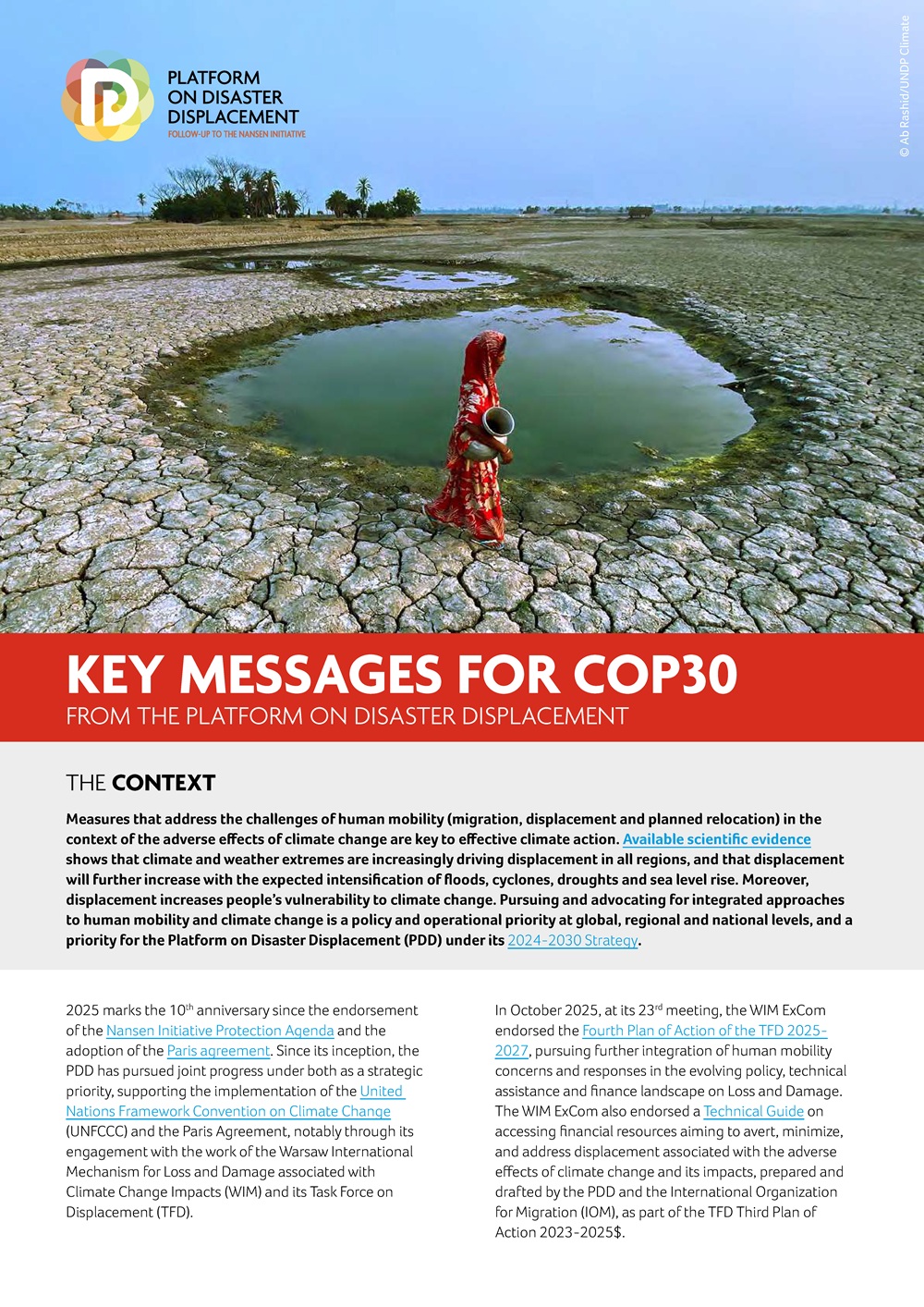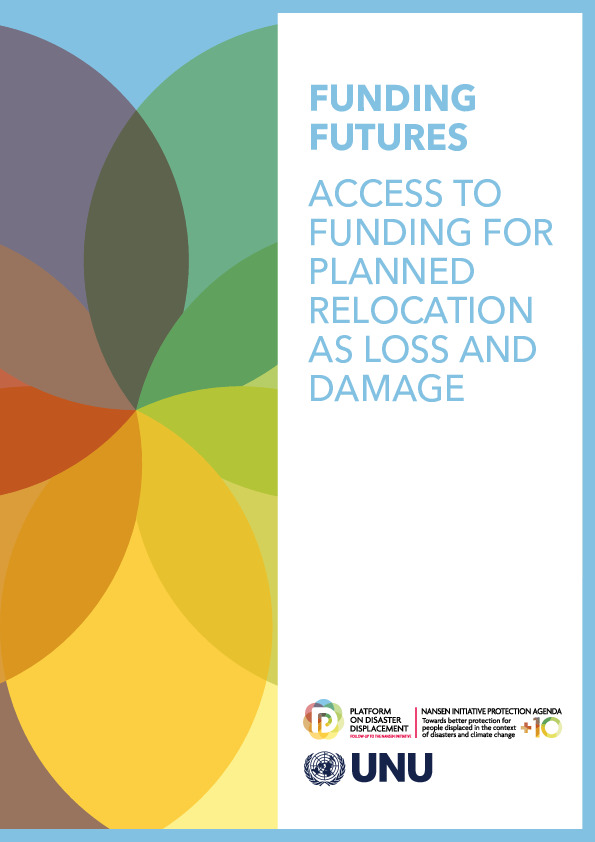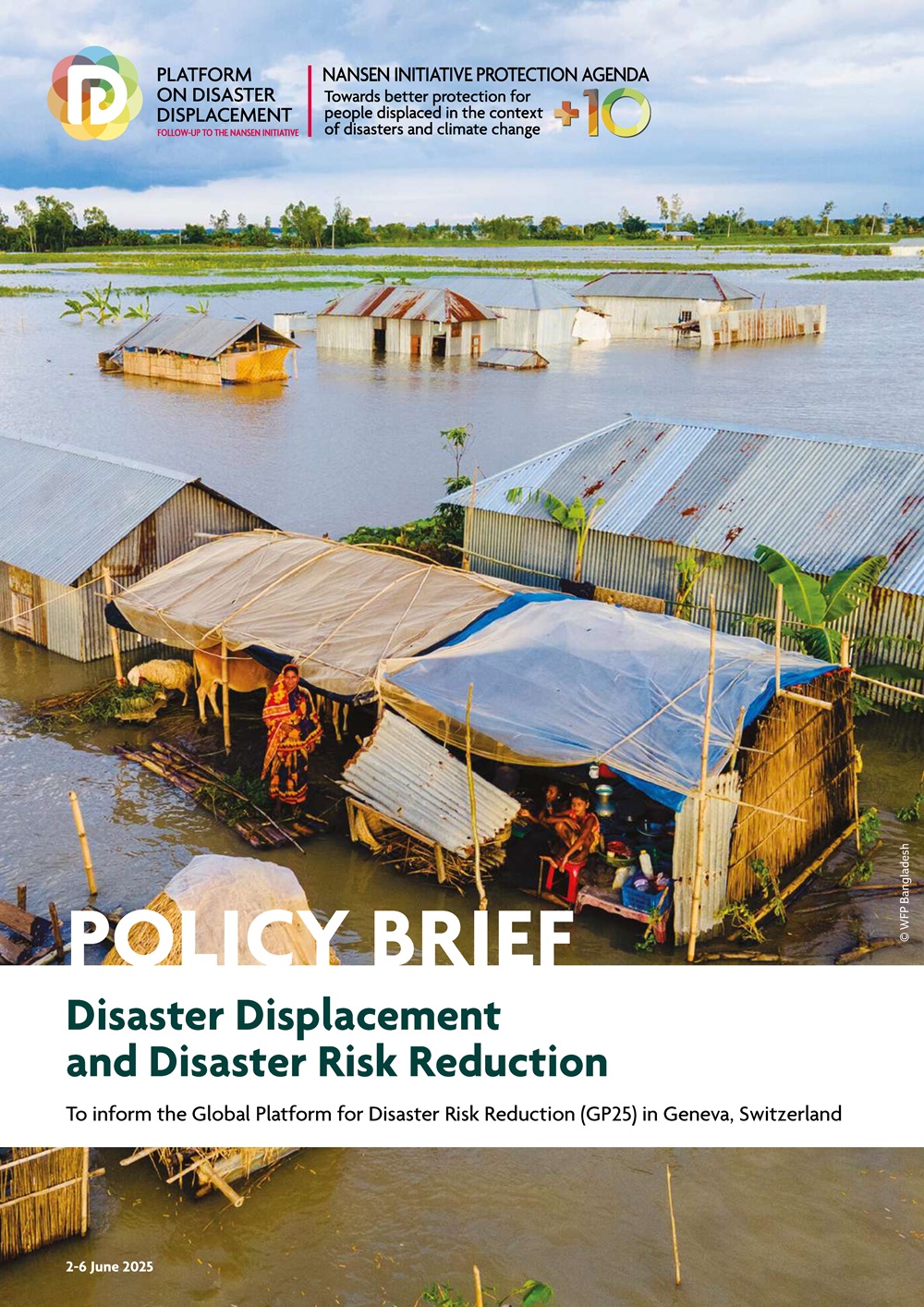Mapping Human Mobility (Migration, Displacement and Planned Relocation) and Climate Change in International Processes, Policies and Legal Frameworks
The Climate Change Conference of the Parties (COP21) under the United Nations Framework Convention on Climate Change (UNFCCC), at its 21st session in Paris in November 2015, mandated the creation of a Task Force on Displacement to develop recommendations for integrated approaches to avert, minimize and address displacement related to the adverse impacts of climate change (hereafter Task Force). The Executive Committee of the Warsaw International Mechanism for Loss and Damage associated with Climate Change Impacts (WIM Excom) was entrusted by the COP to operationalize the Task Force.
In order to support the development of the Task Force recommendations, IOM leads the implementation of two activities of the Task Force’s Workplan under the first two pillars, with an objective to map and analyze to what extent human mobility (migration, displacement and planned relocation) in the context of climate change is integrated in: i) existing policies and frameworks related to human mobility and climate change at the national level; and ii) processes, policies and legal frameworks related to various relevant policy agendas at the international level, including migration governance, labour, humanitarian assistance, human rights, climate change action, disaster risk reduction, sustainable development and environmental protection.
This analysis report presents the key results of the mapping Activity II.2 under Pillar 2): Policy – International/Regional, focusing on the human mobility and climate change nexus at the international level. The mapping identifies and analyzesto what extent human mobility (migration, displacement and planned relocation) in the context of climate change is integrated in processes, policies and legal frameworks related to various relevant policy agendas at the international level, including migration governance, labour, humanitarian assistance, human rights, climate change action, disaster risk reduction, sustainable development and environmental protection.




